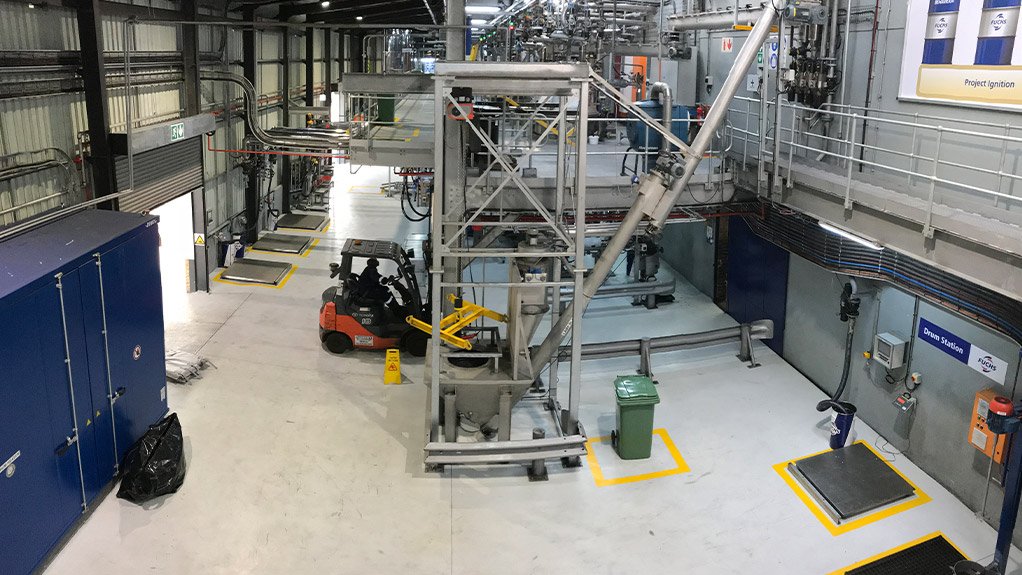The recently opened grease plant by lubricants specialist FUCHS Lubricants South Africa is manufacturing a large variety of speciality grease grades that will be exported across Africa and to other parts of the world.
“FUCHS sees the importance and demand for speciality grease growing significantly and wants to be in a position to support this increase in demand from our customers. But importantly, the reasons for building the new grease plant is not only for capacity, but to inject new levels of process excellence and quality into our grease manufacturing,” says FUCHS Lubricants South Africa MD Paul Deppe.
Additionally, with the opening of the R125-million grease plant, Deppe reports that no staff redundancies were required as a result of the automation of the plant, instead, it created the need to enhance skills levels. “To this end, we identified existing staff comprising grease makers, a supervisor, maintenance engineer and production manager who were all sent to Germany for training.”
Owing to the advanced technology of FUCHS lubricants, he points out that there is a continual need to upskill its staff. As a result, FUCHS regularly sends technicians to Germany for on-site training.
Meanwhile, FUCHS Lubricants South Africa Lubritech divisional manager Giles Cutter explains that some of the challenges currently facing the sector in terms of lubricants for the food sector are the recent listeriosis outbreaks. While not lubricants related, the outbreak brought food safety into sharp focus and companies that are serious about it are reviewing the critical risks. “Lubricants are an integral part of the production process.”
However, he points out that there is a premium to be paid for food grade products owing to their specialist nature. But many companies are on a cost-saving drive and only apply food grade products when forced to. This places their consumers at risk.
Moreover, Cutter highlights that as South Africa becomes more international, international standards such as the British Retail Consortium, demand more rigorous adherence to food safety. Lubricants that should be used in a food production plant are H1 lubricants, also known as incidental contact lubricants. These are not expected to, but may come into contact with food. H1 lubricants must comply with 21 Code of Federal Regulations 178.3570. This regulation establishes formulary requirements for greases and lubricants intended for use in food processing and handling applications where incidental contact may occur.
Importantly, the International Standard for Organisations (ISO) 21469 is an international standard for hygienic production of H1 and HT1 – registration is specifically reserved for heat transfer oils that may have incidental food contact – products. FUCHS Lubricants South Africa is the only plant in Africa to hold the ISO 21469 certification.
FUCHS has the largest and most accessible product range in Southern Africa with a technical support team to assist companies with these challenges.
The accreditations required to produce food grade products are the NSF H1 as a basic minimum – this purely states that the ingredient is not harmful in limited quantities but goes no further, Halaal, Kosher and the ISO 21469.
“Food manufacturers buying lubricants that do not adhere to these standards are putting their consumers at risk. “Buying a cheaper, no-name brand lubricant without the necessary certifications may be tempting, but can in fact put a company out of business,” concludes Cutter.
Edited by: Zandile Mavuso
Creamer Media Senior Deputy Editor: Features
EMAIL THIS ARTICLE SAVE THIS ARTICLE
ARTICLE ENQUIRY
To subscribe email subscriptions@creamermedia.co.za or click here
To advertise email advertising@creamermedia.co.za or click here













